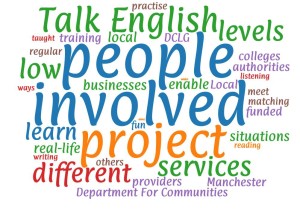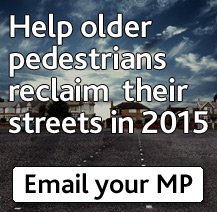Here is the latest issue of News & Events from the Whalley Range Community Forum:
We Stand Together
We Stand Together
To celebrate our difference,
Against hatred and intolerance,
To build a safer and stronger United Kingdom
We Stand Together encourages people to come together as one and celebrate their differences in order to build a safer and stronger United Kingdom.
The initiative has been launched following recent global events which have caused concern within communities across Greater Manchester.
Chief Constable Sir Peter Fahy said: “Greater Manchester has a long and proud tradition of celebrating differences and sets a positive example to the rest of the world, which we should be immensely proud of.
“Recent attacks in Paris and Denmark have inevitably caused tension and fear within our communities and it is more important than ever that we come together as one and send a strong unified message that any attempt to create disharmony or fear is futile.
“We all have a responsibility to encourage community cohesion and I am calling on people to stand together against hatred and intolerance and show their support for each other during this difficult timeâ€.
Councillor Bernard Priest, Manchester City Council’s deputy leader, said: “Mancunians are rightly proud to live in a diverse and thriving city where people respect and tolerate each other, but there is no escaping the fact that incidents in other parts of the world can have an impact on community tensions here.
“Now, it is more important than ever for our communities to show the world that we are continuing to stand together, despite the troubling times we are living through, and demonstrate that hatred and intolerance have no place in our city.”
Police and Crime Commissioner Tony Lloyd said: “Here in Greater Manchester, as across the land, we have strong, cohesive communities where we celebrate our diversity. But we should never take for granted the fact we live in a safe, tolerant part of the world as there are always those who would seek to drive us apart. By standing together we send out a clear and strong message that we celebrate and cherish our inclusive society, as well as recognising that we have a shared responsibility to work to safeguard it.â€
Community leaders will be urging members of the public to use social media to spread the message of standing together using the hashtag #WeStandTogether
To report an incident of hate crime, please contact Greater Manchester Police on 101 or 999 in an emergency. Alternatively, please report online to True Vision (www.report-it.org.uk) or use the True Vision app.
23 March 2015
The Great Hall
Manchester Town Hall
Event 2:00 pm – 4:00 pm
(Doors open 1:30 pm)
This year Manchester Communities Together 2015 will showcase the diversity of local opportunities and inspire you with new ways to get involved in your local neighbourhood.
Whether you are an active resident looking for information to help your group, some one who wants to start a group and doesn’t know where to start or a local person looking for ways to get involved locally, you will find it here at the Manchester Communities Together Event 2015.
The event is supported by Clean City and there will be plenty of information on how you can get involved, apply for small grants, and find out what residents, neighbours and community groups across the City are doing with Clean City.
You can choose attend workshops to help get your project off the ground
- Starting a new group – do you want set up a residents group but don’t know where to start, find out want to consider.
- Different ways to get people involved – learn from the experiences of established groups
- Greening your Alley – turn an unloved space into an urban wonderland, with funding. See what other groups have created and how they did it.
Come along, bring a friend and join in.
Attendance is limited so please reserve your place for this interesting event by
Thursday 19 March.
To register email community.engagement@manchester.gov.uk with your name, telephone number, the details of friends coming with you, accessibility considerations and express your interest in one or more of our workshops. Alternatively please contact us by telephone.
0161 274 6431
Video: Whalley Range on Wheels in Alexandra Park
Celebrate Your Alleygates Booklet
A potted history of our project:
Celebrate Your Alleygates is a Big Lottery Fund project in Whalley Range, Manchester. It was one of the winners of the Big Family Idea: a competition held by National Family Week and the Big Lottery Fund as part of the launch of National Family Week in 2009.
Please use and share our resource!
Broken planters link from booklet: Planters
Term Time Classes at JNR8
Generating Opportunities
Talk English for beginners/entry level 1
Mondays 10am – 1pm
Tai Chi with Kaz
The Tai Chi form has for centuries inspired men and women of all ages, of all walks of life and of levels of fitness.
Come and find out Why!
Mondays 1:30-2:30pm
ESOL for Local Women
A women-only safe space to practice English with women of all levels, ages, faiths and cultures

Beat Fit with Beatriz Lazurus
Fitness sessions
Wednesdays 10-11am – Women Only
Afternoon Tea for Older Residents{1}
Safer streets are a right priority for next Government say 65 and overs
Living Streets News
Tuesday, January 27, 2015
Potential measures to make walking on the streets safer and easier are a right priority for the next Government, according to 62 per cent of people aged 65 and over. These are the results of a YouGov poll commissioned by Living Streets and published today (27 January 2015).
Although the majority (82 per cent) say they enjoy getting fresh air when walking outside in the UK, 60 per cent feel angry and frustrated by speeding vehicles in built-up areas. The same number (60 per cent) felt angry and frustrated by the risk of tripping and falling on poorly maintained pavements and 57 per cent by obstructions on the pavement such as parked cars. Shockingly, of those who have never been hit by a vehicle when crossing a road in the UK in the last 5 years, half feel there is a medium or high risk of this happening.
An Active Travel Bill could introduce measures to make walking safer and easier for more vulnerable pedestrians, says the national charity, but older people need to make politicians realise it important.
Eighty-year-old Shelia Blaker walks everyday with her dog Jack in her local neighbourhood in Doncaster. She is writing to her local MP, Labour Party leader Ed Milliband. Shelia says:
Jack and I enjoy getting out and seeing friends and neighbours, but we are limited to where we can walk because we live in a triangle of busy main roads. Even on a quick walk round the block were often faced with uneven pathways, potholes, muddy and obstructed footpaths where cars park on the grass verges.
Being able to get out for a daily walk is very important to me for my health and mental wellbeing, so things like slower traffic speeds, having plenty of time to get across the road safely and clear legislation on pavement parking would improve the quality of my life. That why Im asking Ed Miliband to commit to the introduction of an Active Travel Bill. In the run up to the General Election in May, people can use campaign resources from the Living Streets website to question their local parliamentary candidates or run their own local campaigns.
Living Streets Chief Executive, Joe Irvin, said:
Our society is getting older and if we are to stay healthy, active and independent in our later years, we need to be able to get around our local neighbourhoods safely. Our supporters tell us how important these issues are to them and this poll bears this out. If parliamentary candidates are serious about responding to the grey vote then theyll support our call for an Active Travel Bill.
– See more at:
Our Latest Whalley Range News & Events Newsletter
On the Radio: Positive Ageing
Radio 4 Interview about Positive Ageing
Guy Robertson is interviewed on Radio 4 “You and Yours†progamme, broadcast on 2nd July. The interview is part of a major new BBC series on ageing. Guy talks about how Positive Ageing courses can be a way of making the most of life beyond 60. He emphasises the need to bust many of the negative myths surrounding ageing and then goes on to highlight the benefits of undertaking some structured life planning for this important phase. No other generation has had so much time post retirement and it is clear that we need to re-invent this phase of life if we are to make the most of it. Guy also highlights the importance of developing a positive mental approach to life. Research shows conclusively that a glass half full perspective produces much better health, wellbeing and longevity. And at Positive Ageing we are able to support people in some of the techniques to achieve this.
Age UK Cold Weather Advice
Keep warm and well this winter.
As you get older it takes longer to warm up which can be bad for your health. The cold thickens blood and increases blood pressure, and breathing in cold air can increase the risk of chest infections.
The ideal temperature is 64°F (18°C) for your bedroom and 70°F (21°C) for your living room. Check your thermostat or use a room thermometer to monitor temperature, and keep your bedroom window shut on a winter night.
If there is anyone you know who might be at risk, make sure they know what to do.
– Download our Winter wrapped up guide for more help and advice (PDF 1MB)
The Met Office
Were working with the Met Office again this year – to help keep you prepared for cold weather over winter.
Met Office Cold Weather Alerts are a way of warning about cold weather conditions in advance – so you can take extra precautions to keep safe and well. They operate from November 1 to March 31 every year, in association with Public Health England.
The alerts themselves can be found on the Cold Weather Alerts page on the Met Office website, Twitter feed and on TV and radio. You can find out more about the Met Office Get Ready for Winter campaign too.
With 24,000 older people dying as a result of cold weather every winter, it is vital that we increase the awareness of the effects of cold weather on health.
Help and advice for people who feel unsteady when using buses, trains or trams
If youre unsteady on your feet – or if you care for someone who is – then weve created this webpage to help you using public transport to get about safely.
We work with the various Network Rail and train companies to make local trains and stations easier to use.








